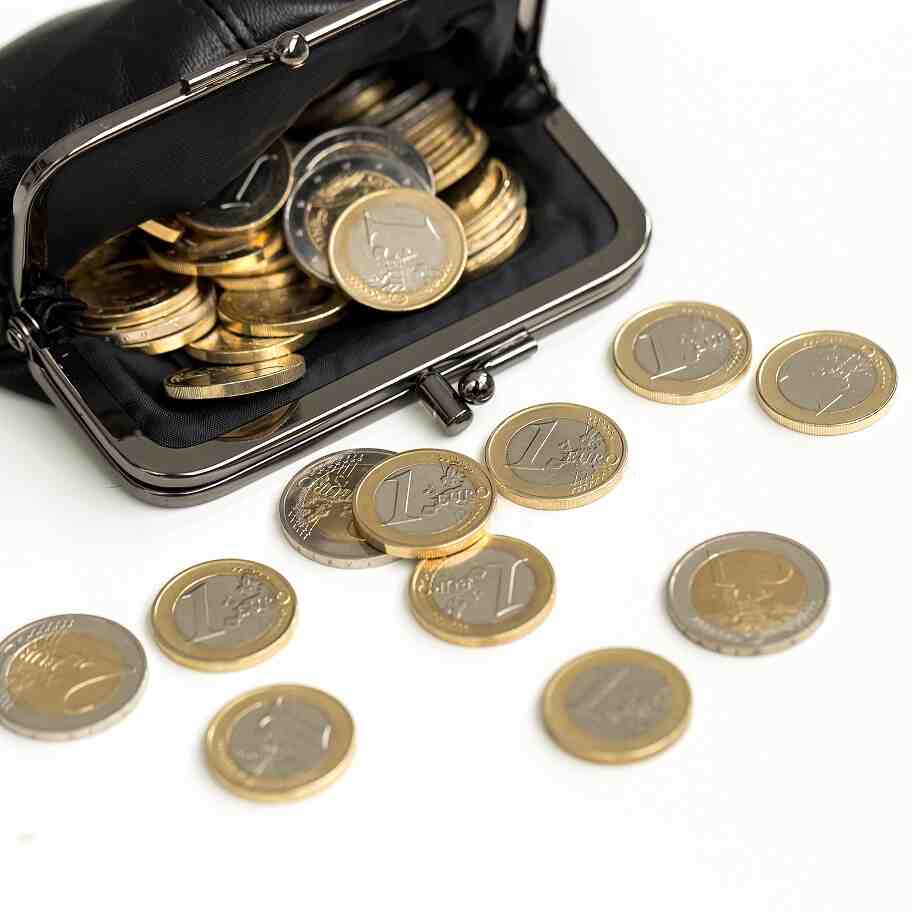Securing Your Cryptocurrency on Exchanges
Cryptocurrency exchanges serve as the primary platform for buying, selling, and trading digital assets. They act as gateways for crypto investors, allowing users to access various coins and tokens. However, while exchanges offer convenience and accessibility, they are also frequent targets for cyberattacks, making it essential to take proactive steps to secure your cryptocurrency holdings. This article explores how to secure your cryptocurrency on exchanges and minimize the risks associated with trading and storing assets on these platforms.
1. Choose a Reputable Exchange
The first step in securing your cryptocurrency is selecting a reputable exchange. The exchange you choose plays a significant role in the security of your funds, as some platforms are more prone to security breaches than others.
Key Factors to Consider When Choosing an Exchange:
- Security Features: Look for exchanges that offer strong security measures, such as two-factor authentication (2FA), cold storage, and insurance policies against hacks.
- Regulatory Compliance: Opt for exchanges that comply with local regulations and follow industry standards. Regulatory oversight can add an extra layer of security to the platform.
- Reputation and History: Research the exchange’s track record. Avoid exchanges with a history of frequent hacks or security incidents. Trusted exchanges like Coinbase, Binance, Kraken, and Gemini have built reputations for prioritizing security.
- User Reviews: Check online reviews and community feedback to gauge the exchange’s security practices and customer service.
Why It’s Important: Using a reputable exchange with a solid security infrastructure reduces the likelihood of losing funds due to a platform’s vulnerabilities. Avoid exchanges with questionable reputations or poor security practices.
2. Enable Two-Factor Authentication (2FA)
Two-factor authentication (2FA) is one of the most effective ways to protect your account from unauthorized access. 2FA requires users to provide two forms of identification—something they know (password) and something they have (a secondary device or code). This additional layer of security makes it much harder for hackers to access your account, even if they manage to obtain your password.
Popular 2FA Options:
- Google Authenticator: Google Authenticator generates time-based one-time passwords (TOTPs) that you enter when logging into your exchange account. It’s one of the most widely used 2FA apps.
- Authy: Authy is a similar 2FA app to Google Authenticator, but it offers additional features like multi-device syncing and cloud backups.
- SMS 2FA: While SMS-based 2FA is less secure than app-based options, it is still better than using no 2FA at all. Be cautious of SIM-swapping attacks, where hackers gain control of your phone number.
Why 2FA is Crucial: Enabling 2FA drastically reduces the chances of a hacker accessing your account, even if they know your password. It adds an additional layer of defense against unauthorized logins.
3. Use a Strong, Unique Password
Your password is the first line of defense against unauthorized access to your exchange account. Weak passwords are easy targets for hackers who can gain access to your account and steal your funds. A strong, unique password should be used for every account, especially for cryptocurrency exchanges.
Tips for Creating Strong Passwords:
- Length: Use a password that is at least 12-16 characters long.
- Complexity: Include a combination of uppercase and lowercase letters, numbers, and special characters.
- Avoid Personal Information: Do not use easily guessable information, such as your name, birthday, or common words.
- Use a Password Manager: Consider using a password manager to store your passwords securely. This ensures you use strong, unique passwords for every account without having to remember them.
Why Strong Passwords Matter: A strong password is your first line of defense against brute-force attacks, where hackers try every possible combination to gain access to your account. Combining a strong password with 2FA ensures a much higher level of security.
4. Withdraw Funds to a Secure Wallet
While exchanges offer convenience for trading and holding crypto, they are also prime targets for hackers. Even though many exchanges use cold storage for most funds, leaving significant amounts of cryptocurrency on an exchange exposes you to potential risk.
To minimize the risk, consider withdrawing your cryptocurrency to a secure wallet. This can be either a hot wallet (software-based) or, more securely, a cold wallet (hardware-based).
Cold Wallets for Storage:
- Ledger Nano X: A popular hardware wallet that supports multiple cryptocurrencies and offers top-tier security features.
- Trezor Model T: Another widely used hardware wallet that provides robust protection against hacking and theft.
Why Withdrawing Funds Is Important: Exchanges are vulnerable to hacks, and in the event of a breach, your funds may be stolen. By moving your cryptocurrency to a personal wallet, you maintain control of your private keys and reduce the risk of losing your assets in case the exchange is compromised.
5. Monitor Your Account Regularly
Keeping an eye on your account activity is a proactive way to spot suspicious transactions or unauthorized access. Most exchanges offer notifications for login attempts, withdrawals, and other activities that can help you detect any irregularities early.
How to Monitor Your Account:
- Enable Alerts: Set up email or SMS alerts for every login, withdrawal, or change to your account.
- Review Transaction History: Regularly check your account’s transaction history to ensure there are no unauthorized transactions.
- Check for Unauthorized Devices: Many exchanges allow you to see which devices are logged into your account. If you notice any unfamiliar devices, log out and change your password immediately.
Why Monitoring Is Crucial: Regular monitoring of your account helps you spot suspicious activity early, giving you a chance to take action before significant losses occur. This can be particularly important in the event of a breach or attempted hack.
6. Avoid Phishing Scams
Phishing attacks are one of the most common methods hackers use to gain access to exchange accounts. These scams typically involve fraudulent emails, messages, or websites that impersonate legitimate exchanges to trick you into providing sensitive information, such as your login credentials or 2FA codes.
How to Avoid Phishing:
- Check URLs: Always double-check the URL of any website you visit to ensure it is legitimate. Look for “https://” and a padlock icon in the browser’s address bar.
- Avoid Clicking on Links in Emails: Never click on links in unsolicited emails or messages. Always visit the exchange’s website directly by typing the URL into your browser.
- Be Cautious of Unsolicited Messages: If you receive messages from an exchange that seem suspicious or ask for personal information, contact the exchange directly using verified contact methods.
Why Phishing Protection Is Important: Phishing attacks are designed to steal your sensitive information. By being vigilant and avoiding phishing attempts, you can protect your exchange account from unauthorized access.
7. Use Insurance and Security Features Provided by the Exchange
Many exchanges now offer additional security features and insurance to protect user funds. While these features can vary, they provide an extra layer of security in the event of a hack or security breach.
Common Exchange Security Features:
- Cold Storage: Many exchanges store the majority of their funds in cold storage, making them less vulnerable to hacking.
- Insurance: Some exchanges offer insurance policies to protect users in case of a breach. For example, Coinbase provides insurance for digital assets stored in its vaults, although this insurance may not cover all types of losses.
- Internal Security Audits: Reputable exchanges perform regular security audits and penetration testing to identify vulnerabilities and improve security measures.
Why These Features Matter: While insurance and security features provide added protection, they should not be relied upon exclusively. It’s still important to use your own security practices, such as 2FA and wallet backups, to safeguard your assets.
8. Keep Your Personal Information Secure
Your personal information can be a valuable target for hackers looking to compromise your crypto accounts. Avoid sharing sensitive details like your private keys, passwords, or recovery phrases online or with anyone you do not trust.
Best Practices for Personal Security:
- Limit Information Sharing: Only share your information with trusted platforms and individuals. Avoid sharing private keys or recovery phrases under any circumstances.
- Use Secure Communication Channels: If you need to discuss your crypto holdings with someone, ensure you’re using a secure communication channel (e.g., encrypted messaging apps).
Why Personal Security Is Key: By protecting your personal information, you reduce the likelihood of falling victim to scams or social engineering attacks, which could lead to the theft of your crypto assets.
Conclusion
Securing your cryptocurrency on exchanges requires a combination of strong security practices, vigilance, and proactive measures. By choosing a reputable exchange, enabling 2FA, using strong passwords, and withdrawing funds to secure wallets, you can significantly reduce the risks associated with trading and holding crypto assets. Always stay informed about the latest security trends and be cautious of potential threats to protect your investments from hackers and cybercriminals.










